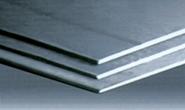Government/Policy

February 23, 2016
DOC Initiates Circumvention Inquiry on CTL Plate from China
Written by Sandy Williams
The Department of Commerce is initiating a circumvention inquiry on imports of cut-to-length steel plate from China following a petition from Nucor and SSAB.
![]() The two steel mills assert that producers, exporters and importers are circumventing duties imposed on CTL by adding alloys, such as boron, titanium and chromium to the product. The Department of Commerce will investigate the addition of such alloys to CTL plate of ASTM grade A36 and A572, originating from China.
The two steel mills assert that producers, exporters and importers are circumventing duties imposed on CTL by adding alloys, such as boron, titanium and chromium to the product. The Department of Commerce will investigate the addition of such alloys to CTL plate of ASTM grade A36 and A572, originating from China.
Commerce will issue a final determination within 300 days of the date of initiation (February 18, 2016).
Steel Market Update spoke with trade attorney Lewis Leibowitz earlier today about this circumvention inquiry (which is different from a petition under the ENFORCE Act). This is what he had to share with us on the subject:
This is an anti circumvention inquiry (ACI) initiated by Commerce last week…
An ACI is different from a Customs investigation into evasion of an order. Customs (ENFORCE Act) gets involved when the scope of the order is clear and the importer and/or its foreign suppliers simply lie about what is in the shipment. An ACI is a request to Commerce to expand the scope of an order when there are “minor alterations” to a product specifically designed to get around the scope of an order. Commerce has the authority to expand the order to cover such “minor alterations”. That is what we have in the China case you referred to.
There are larger issues here, of course. Anti circumvention proceedings are not so broad as to allow a rewrite of the scope of an order. That is why ACIs are limited to “minor” changes in the products. Petitioners are not very concerned about the problems caused by creating infinitely malleable and expandable orders. But Congress was a bit concerned—as is the WTO.
Over the last ten years or so, several ACIs on carbon steel orders have related to the addition of boron as an alloying element. Apparently, adding boron does not do much to the characteristics of the steel for standard commodity-grade use. CTL plate from China had just such an ACI several years ago. Now, Chinese producers are allegedly adding other elements (e.g., chromium, titanium) that only change the characteristics of the steel if it undergoes heat treatment. The accusation is that the steel is being sold under standard commodity-grade ASTM specs (no heat treatment), but has alloying elements that meet the definition of “alloy” steel rather than “carbon” steel. Petitioners further allege that the cost of adding these elements to the steel is “minor” and that the only motivation for doing so is to circumvent the order.
The case has just been initiated, and will take the better part of a year to sort out. Note that Commerce did not initiate on all the petitioners’ allegations. For one thing, they are concerned about administering the order, so they do not favor any criterion that depends on knowing what’s done with the product after initial importation.
There will be a lot of arguing back and forth about these issues. At the end of the day, if Commerce is convinced that the additional cost is “minor” and that the only motive is circumvention, they would probably expand the scope.
One other point—because of a “history” of circumvention in this case, the ACI is not limited to particular exporters (this is different from the tissue paper case I sent yesterday). All CTL plate from China is covered by the ACI.







